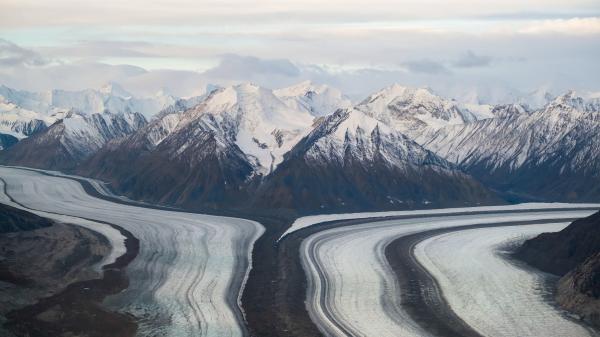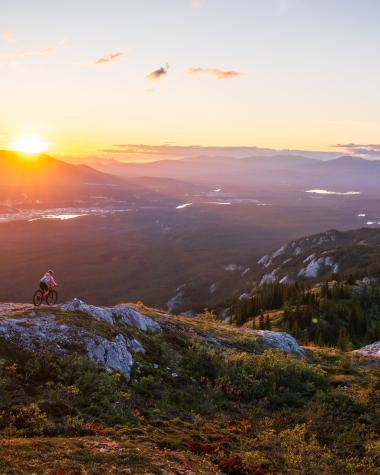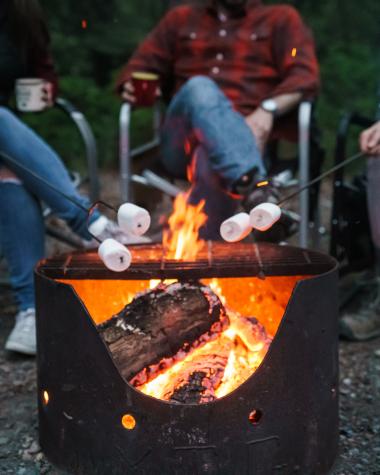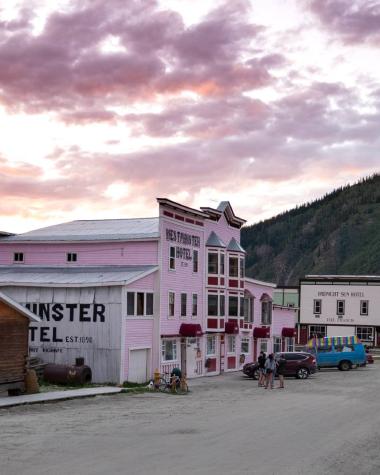
Wildlife, wilderness & wonders How to explore the Yukon wilderness

Keeping it wild
Let’s start with the basics. Always let someone you trust know about your travel plans—especially if you’re trekking into the backcountry. Nobody likes homework, but we advise checking out the Yukon Smart Travel Plan. Extra gold stars if you complete it and leave it with a friend.
Bears, bugs & beyond
There are lots of bears in the Yukon, but your chances of encountering one are low. In addition to not eating their porridge or trying out their beds, here are some good rules of thumb when it comes to our fuzzy friends:
- Carry bear spray and know how to use it properly.
- Learn how to identify signs of bear activity.
- Know if the area you’re in is good bear habitat.
- If possible, choose trails with good visibility.
- Approach thickets from upwind so that bears can smell you (and not be surprised).
- Make lots of noise.
- Travel in groups.
- Avoid traveling at dusk or night.
- When camping, set up your tent away from wildlife trails.
- Don't store food in your tent.
For more information, visit the Department of Environment or phone 867.667.5221.
As for bugs, mosquitoes are out in June, July and August. Black flies appear in late August and September. Pack along repellent or a bug jacket, just in case.
Splish splash
The Yukon has some of the most beautiful lakes and rivers in the world. Enjoy yourself, but keep a few water-safety tips in mind when you do:
- Cold water is more dangerous than you think. Prepare for the shock of cold water – always wear a life jacket.
- Alcohol and boating do not mix, please leave the alcohol onshore.
- Check the forecast. Return to shore immediately if bad weather approaches.
- Obey all warning signs and buoys around hydroelectric stations and dams; waters can change in a matter of seconds.
- Drive powerboats responsibly—use appropriate speed, especially when the water is choppy.
- Stay seated! You can easily fall out of a small powerboat, canoe or kayak—don’t be that guy.
- Be prepared. Ensure your vessel has the required safety gear on board and sufficient fuel.
- Carry a VHF radio or satellite phone with you when on the water.
- Always tell someone where you are going and when you will return.
- Get trained. Learn how to survive an unexpected fall into the water.
For more information on water safety, visit the Office of Boating Safety.
Make like a tree
Now that we’ve covered your health, let’s consider the health of this beautiful land as well. Our simple rule is to leave no trace behind. That means:
- Pack out all trash.
- Build fires in existing fire pits or portable fire pans.
- Respect wildlife.
- Bury or pack out human waste.
- It’s respectful, almost effortless and ensures the great wild stays just that. Find out more about how you can Leave No Trace.
Please obtain proper licenses for camping, fishing and hunting. If you are planning a river trip, please read up on Best Environmental Practices on Yukon Rivers.











